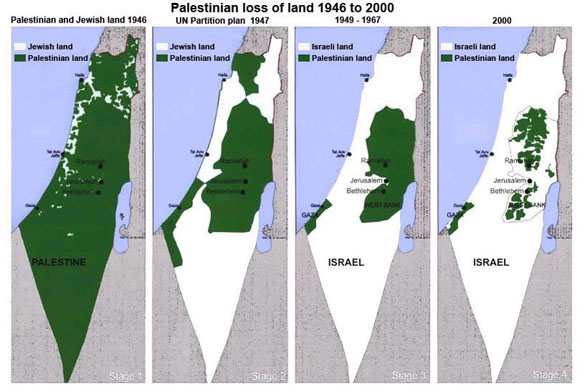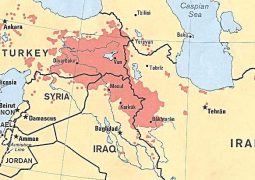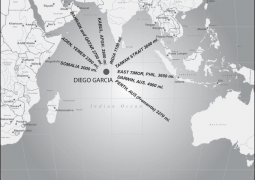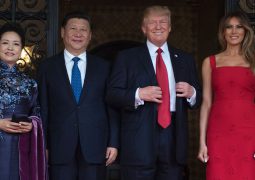Israel bans top Palestinian Waqf officials from Al-Aqsa

Move follows Waqf Council’s decision to defy a 16-year Israeli ban and reopen the Bab al-Rahma building in Al-Aqsa.
Police in Israel have extended bans on top Palestinian officials who oversee Jerusalem’s Al-Aqsa compound from entering the holy site, in a move analysts warned could further escalate tensions.
The decision on Sunday came weeks after the Islamic Waqf Council, a religious body appointed by Jordan to oversee the Al-Aqsa compound, defied a 16-year Israeli ban on the Bab al-Rahma building within the site and reopened it to Muslim worshippers.
Following the council’s decision on February 14, its head Sheikh Abdel-Azeem Salhab and his deputy, Sheikh Najeh Bkerat, were briefly detained and hit with a one-week ban. Israeli police extended the bans on Sunday by 40 days for Salhab and four months for Bkerat, a spokesman for the Waqf Council told Anadolu news agency.
Salhab told local media that police informed him the ban was due to his role in opening Bab al-Rahma.
Israeli authorities had shut down Bab al-Rahma in 2003, claiming the site was being used by members of the outlawed Islamic Movement in Israel Northern Branch for political activities, an allegation the Waqf Council denies.
Since its reopening, some 100 Palestinian activists and religious figures have been detained “in an effort to put an end to Palestinian defiance of Israeli orders”, according to Wafa, a Palestinian news agency
Among them were Arafat Naib, a guard at the Al-Aqsa compound, who was banned from entering the site for six months, and Nasser Qous, a Fatah party official in Jerusalem, who was also barred for 40 days.
‘Intimidation’
Jordan’s Waqf ministry condemned the bans on Sunday, describing them as “intimidation of the [Waqf] Council members” and a “direct targeting of the Hashemite [Jordanian] guardianship of Islamic and Christian holy sites”.
Jordan oversees the Al-Aqsa compound via the Waqf Council according to a 1967 status quo agreement with Israel.
The deal prohibits non-Muslim worship at Al-Aqsa, but many Palestinians accuse Israel of trying to undermine it.
Following his ban, Salhab told Arab48 news website that with the expulsion of scholars and guards from the site, Israel’s right-wing government is trying to “ignite a religious war” as it continues to “facilitate Israeli extremists’ intrusions” into the compound.
“The Al-Aqsa mosque is the property of Muslims alone, and no other religion has the right to it. It seems that Israel is trying in vain to change the status quo in the Al-Aqsa mosque, and this is what we will not allow,” Salhab said.
With Bab al-Rahma remaining open for prayers, religious Zionists and Israeli Knesset members have called on Israeli Prime Minister Benjamin Netanyahu to prohibit Palestinian access to the building.
Ofer Zalzberg, a senior analyst at the International Crisis Group, described the bans against the top officials as “unprecedented”.
“We’ve seen bans on Waqf guards, but we haven’t seen bans on members of the Waqf Council,” Zalzberg told Al Jazeera.
“They reflect a significant escalation in relations between Israel and the Waqf and deeper than that, between Israel and Jordan. Netanyahu is trying to signal that [Israel] will not be silent when the Waqf is challenging Israeli policy at the holy site but at the same time Netanyahu is avoiding sending in the police in order to force closure of Bab al-Rahma.”
The opening of Bab al-Rahma has angered many religious Zionists, including activists of the Temple Movement, who advocate the building of a Jewish temple over the Al-Aqsa compound.
Once a fringe group, the group now enjoys the support of mainstream Israeli political and religious organisations.
Zalzberg said he expected a significant backlash from religious Zionists, as Israel was heading towards a general election on April 9.
The Temple Movement was working on an “election plan” regarding the issue, he said, adding: “They are more likely to ask specific demands regarding Israeli policies towards the site in order to change long-standing policy.”
Additional reporting by Mersiha Gadzo.
- Previous Spratly’s Stakes: It takes a lot to protect our Spratlys ‘territories’
- Next Jordan MPs demand expulsion of Israeli envoy over Al-Aqsa dispute
















